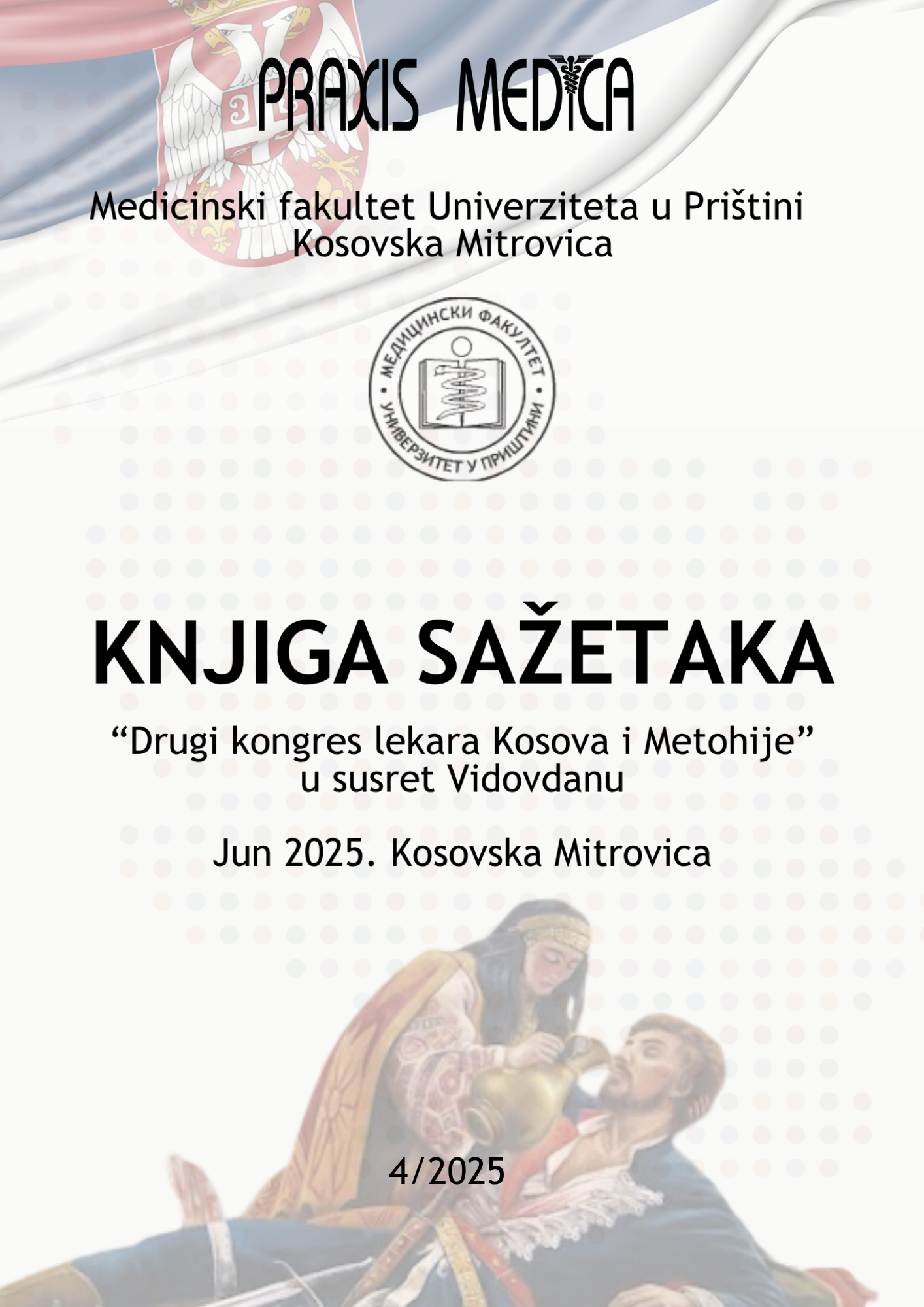
More articles from Volume 36, Issue 2, 2008
EARLY DIAGNOSIS OF THE SMALLAIRWAYS DISEASE AT ASYMPTOMATIC SMOKERS
THE IMPORTANCE OF EARLY WARNING SCORE IN PREDICTING IN-HOSPITAL CARDIAC ARREST
ELECTROCARDIOGRAPHIC AND HEMODYNAMIC CHANGES IN ANESTHETIZED DOGS UNDER THE INFLUENCE OF VERAPAMIL
INTRAHOSPITAL MORTALITY OF PATIENTS SUFFERING AN ACUTE MYOCARDIAL INFARCTION AND THE IMPORTANCE OF MYOCARDIAL REINFARCTION IN THE INTRAHOSPITAL PERIOD
THE IMPORTANCE OF EARLY WARNING SCORE IN PREDICTING IN-HOSPITAL CARDIAC ARREST
Citations

0
THE IMPACT OF THE FACTORS AT RISK IN DEVELOPMENT OF THE ACUTE CEREBRAL STROKE, ATHEROSCLEROTIC INDEX FOLLOW UPAND IIGM
Neurology and Psychiatry Clinic, Medical Colleg Priština , Kosovska Mitrovica , Kosovo*
Neurology and Psychiatry Clinic, Medical Colleg Priština , Kosovska Mitrovica , Kosovo*
Internal Clinic, Medical Colleg Priština , Kosovska Mitrovica , Kosovo*
Neurology and Psychiatry department, Kosovska Mitrovica Medical Center Kosovo*
Published: 01.12.2008.
Volume 36, Issue 2 (2008)
pp. 33-36;
Abstract
In the most prosperous countries, cerebrovascular diseases takes the high third leading position in mortality rate of the population, therefore justifying the name of a ,,mass killer,, speaking of which, its incidence represents un important not only medical but and socially economic problem (only 2-20% sick ones are able to continue with its previous work) Cerebral stroke incidence is 150-200 cases on 100000 persons per year (1). Taking in consideration all the mentioned, we took as the goal of the study, to investigate the impact of the factors at risk, in ethiopatogenesis of the cerebral stroke. Our study was carried out on 40 patients with acute cerebral stroke hospitalized on the Neurology Clinic, KBC Prishtina. Follow up of the factors at risk in atherosclerosis development included: cholesterol, HDLi LDLtriglycerides level in sera, blood and liquor glucoses, glucoses consuming index-IIGM. Descriptive values of the atherosclerosis index also, and the rate of the premorbid illness as the very important factors in development of the cerebral infarct.
Keywords
References
Citation
Copyright

This work is licensed under a Creative Commons Attribution-NonCommercial-ShareAlike 4.0 International License.
Article metrics
The statements, opinions and data contained in the journal are solely those of the individual authors and contributors and not of the publisher and the editor(s). We stay neutral with regard to jurisdictional claims in published maps and institutional affiliations.






